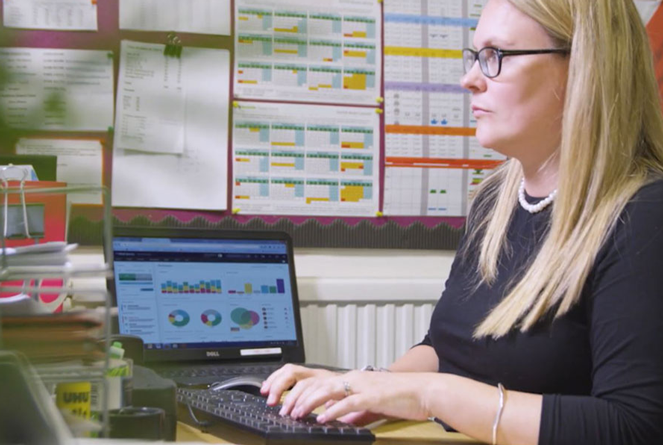Introduction
As of 1 January 2025, independent schools in the UK will need to account for 20% VAT on all education services, vocational training, and boarding services. This change also affects any fees invoiced or paid on or after 29 July 2024 for school terms starting after January 2025. With the removal of the VAT exemption, schools face new financial challenges, making it essential to review expenses and optimise budgets.
In this blog, we share 10 easy ways schools can save money, run more efficiently, and still provide a great education to their pupils. While some tips may seem obvious and others less so, all are worth considering. Not every suggestion will be suitable for your independent school, but implementing even a few of them may significantly help you save money in light of the recent VAT changes.
1. Improve energy efficiency
Making your school more energy efficient helps save money and supports a greener environment. With a few smart changes, you can lower utility bills and boost efficiency. Here are some ideas:
Install smart thermostats: Get a smart thermostat that adjusts heating and cooling based on room occupancy, reducing energy waste in empty spaces.
Conduct an energy audit: Have an energy assessment done to find out where your school is losing heat or using energy inefficiently, with tailored suggestions to improve.
Switch to solar: Look into installing solar panels to lower energy bills—some suppliers offer lease options to reduce upfront costs.
2. Reduce paper usage
Using less paper is not only good for the environment, but it can also help your school reduce costs. There are other benefits, too; digital tools can simplify tasks and cut down on classroom clutter. Here are some simple ways that your school can go paperless:
Use digital platforms: Collaborate using online tools like Google Workspace for shared documents, homework, and resources to cut down on printed materials.
Implement e-signatures: Switch to electronic signatures for forms and approvals to reduce paper use.
Create a digital archive: Scan and store old records electronically, saving space and reducing the need for physical files.
3. Hire out school facilities
Your school’s facilities are a great resource for generating extra income. When hiring to outside agencies, clubs, associations, societies etc., make sure they hold their own public liability insurance. Here are some ways to make the most of them:
Set your rates competitively: Compare the facilities you are offering to others available locally. When deciding how much to charge, make sure you are covering all costs and holding a profit margin while not pricing yourself out of the market.
Partner with local businesses: Work with local groups or businesses to use your facilities regularly, creating a steady income stream.
Advertise online: List your spaces on platforms like Peerspace or local community boards to reach a wider audience.
4. Use government frameworks for procurement
Using government frameworks can help your school save money by utilising bulk purchasing and forming valuable partnerships. Working with other schools also gives you access to better deals and services. Here’s how:
Utilise bulk buying power: Team up with nearby schools to buy in bulk and get discounts on supplies like office equipment or sports gear.
Join regional consortia: Use government frameworks that offer pre-negotiated deals, giving you access to better pricing.
Review contracts regularly: Choose frameworks with flexible contracts so you can switch providers when more cost-effective options become available.
5. Use IT to automate and simplify processes
Using technology can simplify your school's administrative tasks, saving both time and resources. Automating routine tasks will help your school save money in the long run by reducing time spent on manual work.
Automated attendance tracking: Use an app or system that tracks attendance and automatically notifies parents of absences, saving admin time.
Expense management software: Manage budgets and expenses digitally through an app, streamlining submissions and approvals.
Automated reporting: Use tools that compile data for inspections, cutting down the time spent manually preparing reports.
6. Upskill staff to improve efficiency
Investing in staff training helps boost skills and improve how your school runs. By offering growth opportunities, you can build a more efficient and capable team, for example:
Offer short online courses: To upskill your staff affordably, provide staff with access to on-demand courses in areas like data entry or compliance.
Cross-training programs: Encourage staff to learn roles in other departments so they can cover absences, reducing the need for outside hires.
Create CPD expert groups: Form small groups to focus on key areas like HR and IT, allowing knowledge to be shared across the school.
7. Sell unwanted furniture and equipment
Decluttering your school can create more space and help raise funds. By selling items you no longer need, you can clear out old resources and increase your budget. Here are some smart ways to get started:
Hold school auctions: Host auctions to sell surplus items, generating extra income.
Rehome items to local nonprofits: Contact local charities or community centres that might buy your used furniture or equipment.
Use specialised resale platforms: List items on platforms like GovDeals or BPI Auctions that specialise in educational equipment.
8. Review your staffing structure
Taking a close look at your staffing structure can help you find ways to save money. By adjusting roles and responsibilities, you can create a more adaptable and efficient team. Here are some strategies to think about:
Implement role flexibility: Structure roles so staff can help in multiple areas, reducing the need for extra hires.
Specialist roles: Consider outsourcing complete roles or specialised tasks within roles such as HR, Finance or IT to professional companies to mitigate additional staff costs for sickness and holidays.
Encourage staff retention with incentives: Offer competitive pay, flexibility, or CPD opportunities to retain skilled staff and avoid recruitment costs.
9. Bid-led curriculum spending
Being mindful of your spending helps ensure that resources are used wisely across different departments. By putting budgeting strategies in place, you can promote responsible financial practices in your school. Here’s how:
Set spending limits per department: Give each department a budget, with unused funds returned to the central pool to encourage mindful spending.
Introduce resource-sharing programs: Have departments share equipment like technology or science tools to avoid duplicating costs.
Request termly budget reviews: Ask departments to reassess their needs each term, adjusting budgets to prioritise upcoming projects.
10. Monitor and benchmark costs
Regularly reviewing and auditing your school's finances helps you keep track of its financial health. By consistently checking your expenses, you can spot ways to save money and make sure resources are used effectively. Here are some important actions to consider:
Review subscription services: Check for unused or duplicate subscriptions, especially for software, and cancel unnecessary ones.
Audit suppliers annually: Regularly review suppliers like IT or maintenance, comparing their costs to ensure you're getting the best deal.
Encourage a cost-conscious culture: Educate staff on simple savings tips like turning off lights when not needed and not leaving equipment on standby to create a school-wide focus on cost-cutting.
Get expert help with your independent school finances
Don’t let financial worries keep you up at night! We understand that you may be concerned about the upcoming changes and feel overwhelmed by your school’s finances.
Our team of expert education finance consultants works with schools, academies, and MATs every day and can offer advice and support to help you navigate these changes and save money.
Get in touch with our friendly team for a no-obligation chat, and let us help lighten your financial load!


/Primary%20school%20.jpg?width=2000&name=Primary%20school%20.jpg)








.png?width=940&height=788&name=Lingfield%20College%20Case%20Study%20(5).png)
-1.png?width=1000&height=833&name=National%20Association%20of%20Head%20Teachers%20(3)-1.png)
-3.png?width=1080&height=1080&name=Untitled%20design%20(10)-3.png)






